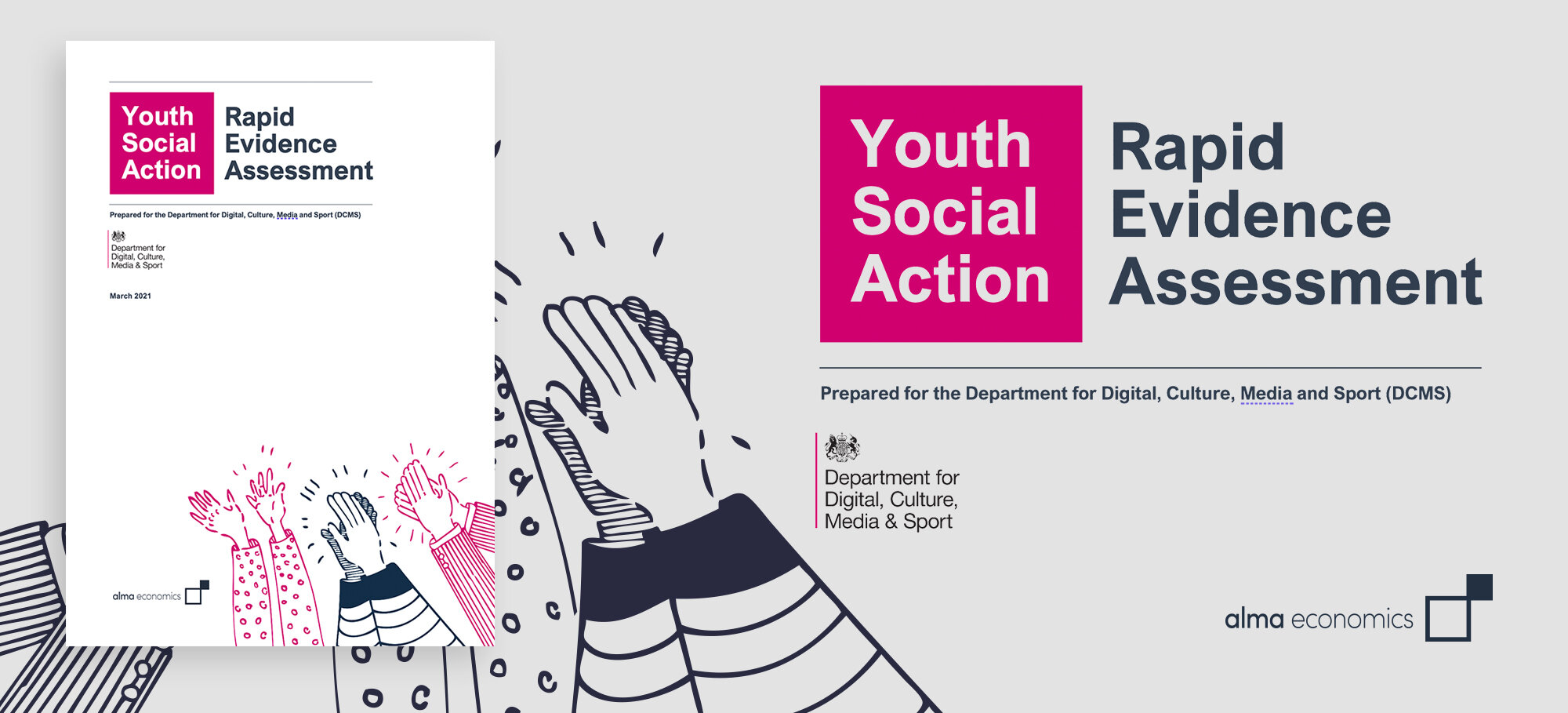Youth Social Action - Rapid Evidence Assessment
For young people, volunteering is a great opportunity to learn, explore, and grow. Yet, young people in the UK are not volunteering or taking part in social action as much as they used to. Alma Economics was commissioned by the Department for Digital, Culture, Media & Sport (DCMS) to carry out a Rapid Evidence Assessment (REA) to explain what makes young people participate in social action and identify the benefits they get from it.
Volunteering is a valuable experience for young people. Those who volunteer show more empathy and confidence, more civic engagement and awareness, and a stronger sense of belonging to their communities. But not all volunteering opportunities are created equal; if young people take part in activities that do not provide hands on experiences, are badly managed, or are not sustained for a long time, they will miss out on the benefits that volunteering brings.
Many of those who would benefit the most from volunteering are not taking part in it. Indeed, many young people are excluded from volunteering because of lack of opportunities and lack of resources. This is especially true for those from poorer areas, ethnic minorities, and migrants. But, on a more positive note, the internet and social media are creating new opportunities for organisations to attract young people from different walks of life and to raise awareness about social issues that are important to young people.
We think more attention should be paid to the inclusivity and diversity of social action programmes to ensure that they reach all young people, no matter their background. We should encourage young people to take a more active role in designing and shaping social action instead of treating volunteering opportunities passively. Internet and social media can help with that, as they get more young people to volunteer and allow them to contribute to issues that are important to them.

